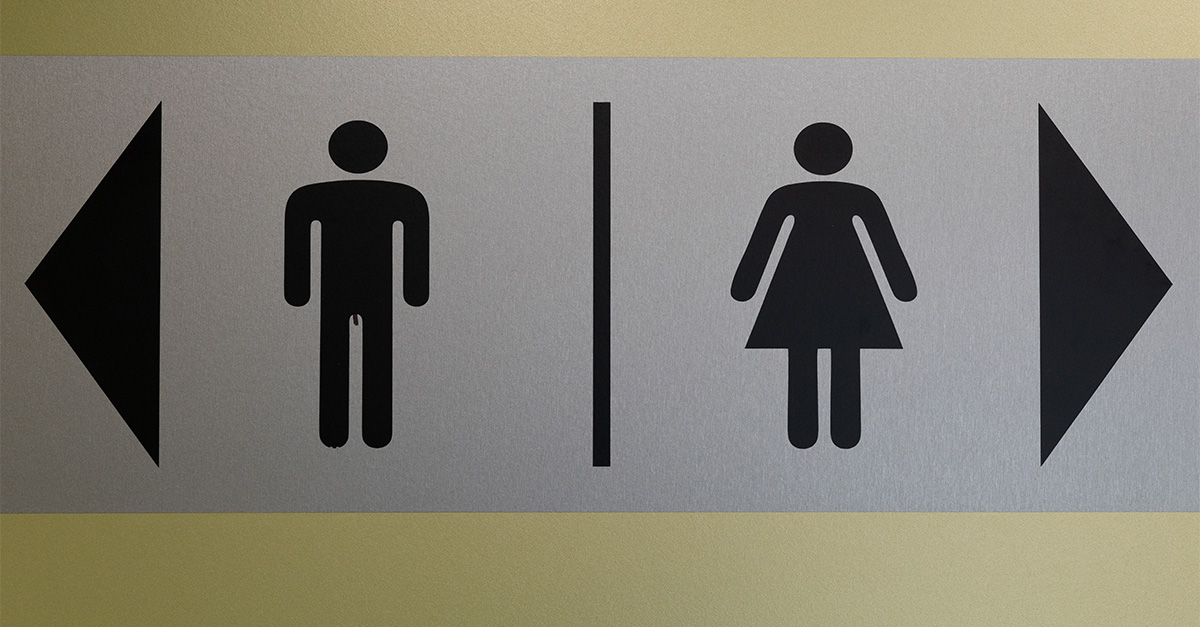


Get a free copy of Parental Rights & Education when you subscribe to our newsletter!

Lawmakers in the Pelican State move to codify common sense by ensuring that women have both privacy and safety in bathrooms, locker rooms, shelters, prisons, and other spaces and situations that have historically been sex-segregated.
Louisiana Gov. Jeff Landry, R, has signed the Women’s Safety and Protection Act, which provides sex-based definitions for various terms and mandates that sleeping and changing arrangements in schools, prisons, and other institutions must be segregated based on sex rather than gender identity.
HB 608, signed into law on June 6, defines a female as “an individual whose biological reproductive system is developed to produce ova; who has, had, will have or would have, but for a developmental or genetic anomaly or historical accident, the reproductive system that at some point produces, transports, and utilizes eggs for fertilization.”
It defines a male as “an individual whose biological reproductive system is developed to fertilize the ova of a female who has, had, will have or would have, but for a developmental or genetic anomaly or historical accident, the reproductive system that at some point produces, transports, and utilizes sperm for fertilization.”
It also defines terms such as “man” and “woman,” “boy” and “girl,” and “mother” and “father” using sex-based definitions.
HB 608 stops any government agency from prohibiting sex-segregated accommodations “with respect to athletics, correctional facilities, juvenile detention facilities, domestic violence shelters, or other accommodation where biology, safety, or privacy are implicated and that result in separate accommodations that are substantially related to the important government interest of protecting the health, safety, and privacy of individuals in such circumstances.”
It also mandates that domestic violence shelters, schools, and juvenile detention and correctional facilities each designate multi-occupancy room, changing room, multi-occupancy restroom, or sleeping accommodation for the exclusive use of males, females, or members of the same family.
The law prohibits any person from using the facility of the other sex.
It also provides a civil cause of action so that a person who is harmed by a violation of the law may file a lawsuit.
It explains that requiring an individual to be housed with members of the opposite sex is discriminatory.
Women’s rights advocate Riley Gaines applauded the decision saying,
“It’s rare form for elected officials today to uphold their promises but today Governor Landry stands true to his word and Louisiana is better for it. I am grateful to all the legislators who sent the ‘Women’s Safety and Protection Act’ to his desk and to Governor Landry for making sure Louisiana women will never fall victim to men stealing their opportunities or spaces. This Women’s Bill of Rights inspired legislation ensures current and future generations of women aren’t discriminated against on the basis of their sex.”
Gaines, a former University of Kentucky swimmer, has spoken out about how she and other female athletes were forced to share a locker room with male swimmer Will “Lia” Thomas, who identifies as female.
Independent Women’s Law Center Director, May Mailman also praised the law stating,
“As a growing contingent of self-important elitists endanger and denigrate girls and women by stripping them of same-sex spaces, IWF celebrates Louisiana’s passage of the Women’s Safety and Protection Act. In defining terms like ‘girl’ and ‘women’ in state law, females gain the transparency they deserve. This bill constrains partisan activists parading as judges and bureaucrats from dissolving women’s protections by re-inventing the word ‘women’ to include men. Louisiana’s women today solidify the legal existence and protections they fought hard to earn.”

This common sense law comes amid a growing number of reports of girls and women being raped by males in school bathrooms and correctional facilities.
Take, for instance, the example of one woman who was a prisoner at Rose M. Singer correctional facility on Rikers Island and was raped by a male prisoner.
The male inmate had been placed in the prison after claiming to be transgender.
The female inmate has filed a lawsuit against the state of New York. She had filed two complaints prior to the rape because the male inmate had propositioned her, told her he was not transgender and only there to have sex with women, had exposed himself to her, and groped her. Despite these complaints nothing was done and allegedly the male inmate raped her in the cell she was forced to share with him.
Tragically, this hasn’t been the only example of a male sexually assaulting a woman in what is supposed to be a sex-segregated facility. It wasn’t even the only instance at Riker’s Island.
In California, a convicted sex offender named Tremain Deon Carroll, 51, who only recently began identifying as a woman, was placed in a women’s facility, where, not surprisingly, he is alleged to have raped two female inmates. Now, after the damage has been done, the state has agreed to transfer him back to a men’s prison.
The danger is not just relegated to prisons. In Loudoun County, Virginia, a young teenage girl was sexually assaulted in a high school bathroom by a “gender-fluid” male wearing a skirt. The school district then covered up the rape, even having the girl’s father arrested to prevent him from speaking up at a school board meeting where policies regarding transgender students using the restroom or locker room of their gender identity was being discussed.
At that meeting superintendent Scott Ziegler lied and said there was no record of any sexual assaults in the school bathrooms and the policy allowing transgender students to use opposite sex facilities was later passed.
The male student was simply shifted to another school where he proceeded to sexually assault another girl.
But it doesn’t have to be as extreme as sexual assault for women to be mistreated. At the NCAA national swimming championships in which Gaines was forced to share a locker room with Thomas, other women have spoken out saying they hid in bathroom stalls or a broom closet under the bleachers where they changed into their skintight suits, something they say takes nearly an hour, rather than have to see Thomas’s male anatomy or to be seen by him.
In an earlier time, this type of behavior would have been criminally prosecuted as voyeurism and indecent exposure.
There is also the case of schools forcing young girls to shower with or sleep with biological males in overnight facilities during camps or field trips, but keeping it hidden from their parents.
That is wrong — in every possible way.
It’s about time we started standing up for women and girls and their right to privacy and safety.
Yet it’s not just girls — we should also protect boys and men from being placed in the terrible position of losing their privacy by being forced to change or shower or share an overnight accommodation with a person of the opposite sex.
Sex is real. Men and women are different.
No person should be allowed to force others of the opposite sex to sleep in the same room with them, see them naked, be seen by them in a state of undress, or worse. More states should do as Louisiana has done and protect the right to safety and bodily privacy.
If you like this article and other content that helps you apply a biblical worldview to today’s politics and culture, consider making a donation here.

Notifications